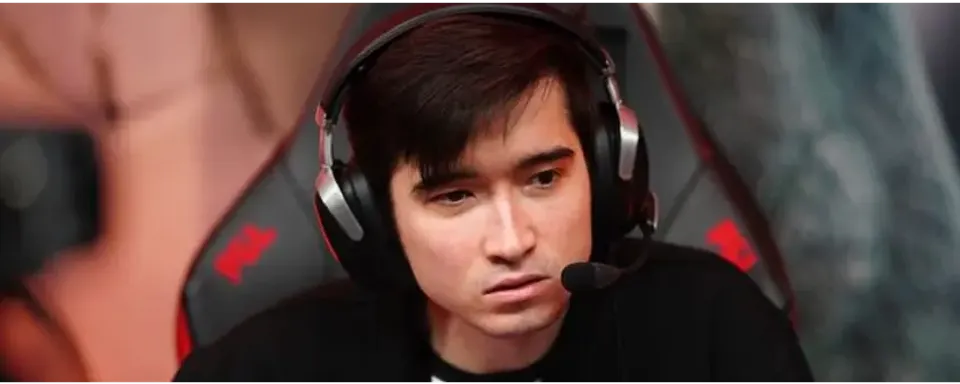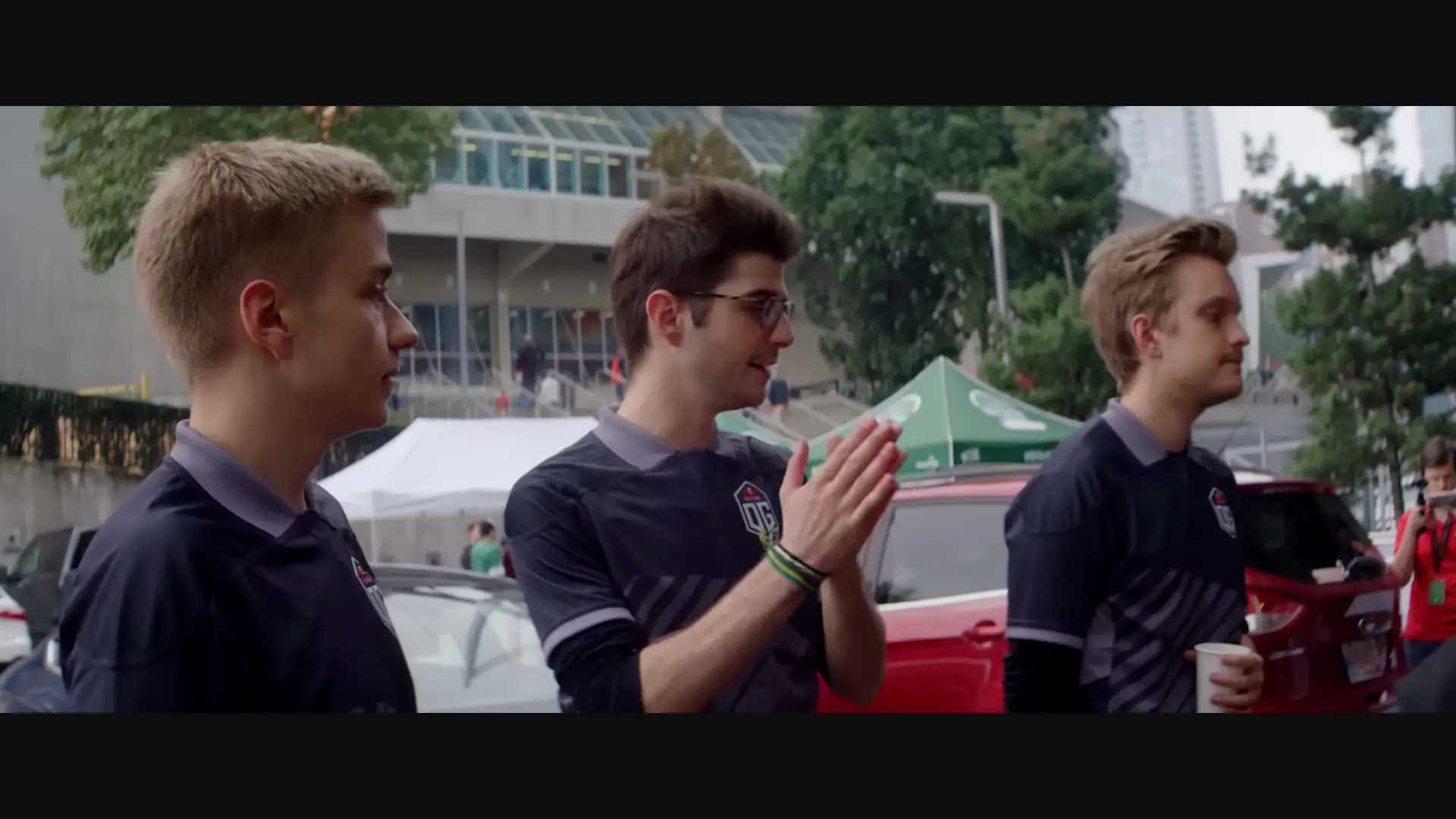- Sarah
Article
14:50, 21.10.2024

In Dota 2 esports, we often look up to professional players. We appreciate their macro prowess, game knowledge, risky plays, and the highs and lows they bring on stage. But behind the front liners of the game, a hard-working coach and analyst monitor every move.
We often only see the five players on-screen, but Dota 2 coaches and analysts are just as crucial for victory as the playing members. And like Team Liquid’s coach, William "Blitz" Lee, said in his winning speech at The International 2024: “It truly takes a village.”
In this article, we will highlight the importance of the often-overlooked role of coaches and analysts.
How do the two roles differ?
Analysts are like the brains of the operation and coaches are the bridges between the information and the team. The two roles work hand-in-hand to understand the current Dota 2 meta, craft multiple strategies, and apply them to the team lineup.
The Role of Coaches in Professional Dota 2 Teams

Strategy Development and Tactical Training
Coaches have to take all the information on the plate and plant it in the players. They have to relay new builds, trends, and strategies to the team and discuss potential tactics together.
The coach needs to assess if the team’s hero pool and playstyle are suitable for certain strategies. And if crucial, mold the players to go outside of their comfort zone, let them experiment with more heroes, try new playstyles, and grow as a team.
The players are often already incredibly good at the game, but coaches would need to push them in the right direction to work efficiently together.

Player Development and Mentorship
Dota 2 coaches not only support the team for their in-game shenanigans but also mental battles. It is a team game that requires immense teamwork, understanding, and chemistry from each player. A broken team can hardly function, especially under the insurmountable pressures during tournaments.
This is why coaches are crucial for Dota 2 team management. On top of bringing energy support on stage, coaches have to be the mental and psychological support in the players’ daily lives. Here are some of the key things that coaches have to do:
- Lift team motivations
- Remind the team to be disciplined
- Instill focus on objectives
- Solve conflicts within the team
- Facilitate conversations between players
- Foster a family-like team bond
- Be a good role model to the team
Opponent Analysis and Preparation
Coaches and analysts often have to look for Dota 2 analytic tools to make better in-depth studies. They have to watch tons of game replays, spot mistakes that could be improved, and find better strategies to implement.
One of the most important parts of Dota 2 is the drafting phase. This is where the coaches and analysts have the biggest role as they are allowed to oversee the drafts before the players take charge.
Before facing an opponent, the coach and analyst would thoroughly study the opponent’s hero pool and drafting patterns. An outdraft could easily bring victory to the team and a lackluster one could mean a quick loss.
The Role of Analysts in Professional Dota 2 Teams

Data Collection and Interpretation
Analysts, as obvious as it is, analyze games. They gather data from a wide range of matches including their own team games, opponent’s games, and high-ranked pub games. They usually assess the factors of a winning game and the points of a losing game. They would try to spot new or potential tactics and improvise ideas to implement to the team.
Dota 2 analysts would use tools like Dota 2 Pro Tracker, the in-game Demo Mode, and DOTABUFF to pick specific details.
Identifying Strengths and Weaknesses
Analysts also have to identify team strengths and weaknesses. They would thoroughly check the team’s performances and pinpoint specific moments. This information can be used when the team wants to utilize their strengths and avoid their weaker points.
For example, an analyst notices that his team is powerful during the laning phase but struggle during the late game. So their temporary solution would be to avoid late-game drafts and snowball a match to end it early.
Supporting Decision-Making Process
Next, the role of analysts in Dota 2 is to enhance players’ decision-making process. Analysts need to break down various critical scenarios in which players have to decide on game-changing choices. Certain situations can greatly influence the team’s routine including rotation timings and item build.
For example, the analyst discovers that team fight durations are now shorter due to a burst meta. Teams don’t have time to respond as the opponent is quickly obliterating heroes on the map. To counter this, the analyst suggests prioritizing Aeon Disks - greatly influencing itemization in the game.

Collaboration Between Coaches, Analysts, and Players

Effective Communication Channels
The three parties - the coach, analyst, and players - need to be on the same page for the campaign to move effectively. In most cases, the three are bootcamping together and communication may be easier. Everyone gets to talk to each other during gaming sessions, meal times, and even while doing leisure activities.
But if certain members are away and can only communicate online, the team has to figure out a good platform for communication and a solid schedule to sync up. Some of the main platforms used are Discord, Whatsapp, and Telegram.
Integrating Analytical Insights into Coaching Strategies
The coach, analyst, and players need to work together to earn the best result. The analyst compiles data findings and collaborates with the coach to come up with multiple strategies and tactics. The coach then relays the new strategies and improvisations to the team. They will explore different methods and experiments to make it work. The players work their best to get used to the meta and improve playstyle execution with each other.
On top of that, the coach and analyst also have to take into account players’ opinions. They would likely have differing suggestions that involve a more creative approach to the game. The coach and analyst need to think of the best direction for the team. It’s an ecosystem that requires a lot of teamwork.

Case Studies of Successful Teams

Team Liquid: A Synergy of Coaching and Analysis
When speaking about a professional Dota 2 team success, one has to think about Team Liquid’s recent victory at TI13. Although the players delivered an insanely powerful performance, one of the biggest factors of their success include the stability between the coaches, analysts, and players.
Team Liquid’s decision to maintain their roster and team structure for years has fostered a robust support system, which has significantly boosted the players' confidence and chemistry with one another.
Despite facing challenges, including a series of second-place finishes, this internal support has proven invaluable. Their perseverance ultimately paid off when Liquid triumphed at TI13.
We had so many losses, we had 5 years without winning anything. We could’ve disbanded like 20 different times like people told us to… I’m just so glad that people like Zai, Nisha, Matu took a chance on us and were willing to play with us.Blitz winning speech at TI13
OG: Innovative Strategies Through Analytical Support
OG is arguably the most successful team of all time, mainly as the same roster claimed the biggest prize money in Dota 2 history following their back-to-back TI wins. But what makes OG so unique and special among all the Dota 2 juggernauts is their innovation and mental strength.
In True Sight, we all witnessed OG’s analytical prowess against the strongest teams at TI8, even outdrafting PSG.LGD multiple times. At TI9, OG showed their daring mentality, picking IO as a carry hero while no other teams did the same - purely believing in their theory and teamwork.
Ceb, who is a coach-turned-player, showed why he was the backbone of the team. He ceaselessly kept the team’s spirit high, even when they have their backs against the wall. He fostered that fire and drive to keep fighting and to never give up, resulting in a dedicated and passionate performance.

The Impact of Coaches and Analysts on Team Performance

Enhancing Team Cohesion and Morals
Coaches and analysts play a crucial role in delivering information and crafting strategies, but their responsibilities extend beyond just these tasks. They must also find effective ways to implement their plans with the team's consensus, often seeking a middle ground that satisfies both departments.
Additionally, they need to help players manage stress and burnout, recognizing that the pressure of high-stakes competition can lead to significant psychological effects. Providing understanding and support is essential for teams to recover and prepare for the next tournaments.
Furthermore, coaches and analysts must demonstrate maturity in handling both losses and victories, showcasing discipline, drive, and effort. This positive example encourages teams to get into a similar mindset.
Long-Term Success and Sustainability
For long-term success, the coach, analyst, and players must commit to consistent training and performance. Consistency is crucial for achieving results, and Team Liquid serves as one of the best examples of this principle in action.
With an exceptionally strong foundation, the team has managed to maintain a solid presence across various seasons, never falling out of the top six at a LAN event. This stability not only reflects their dedication but also highlights the importance of teamwork and strategy in sustaining high-level performance over time.


Future Trends and the Evolving Role of Coaches and Analysts
Technological Advancements in Data Analysis
As we move deeper into the modern era of professional gaming, the roles of coaches and analysts evolve to become increasingly more complicated. One of the reasons why is the presence of Dota 2 analytic tools. For instance, Dota 2's Demo Mode has become more specific, in-depth, and user-friendly, allowing coaches to dissect gameplay with greater precision.
Additionally, platforms like STRATZ and Dota Pro Tracker provide an immense wealth of data, enabling thorough analysis and performance evaluation. As these resources expand, we can anticipate even more advanced sites and tools emerging.
Expanding Responsibilities and Skill Sets
As high-profile teams invest in advanced tools, the skill set to become coaches or analysts expands. Aspiring professionals will likely need to attend specialized training programs to master esports coaching strategies including data analysis, game mechanics, and player psychology. With the growing demand for expertise, those entering the field must develop their skills to meet the expectations of top-tier teams.

Conclusion
That sums up the roles of coaches and analysts in the esports industry, through the lens of Dota 2 teams. Although they reside behind the scenes, they play a crucial and highly important part in the success of most champions.
They are the brains and the bridge of a team that consistently provide support to each individual players. Hopefully, we can lend more appreciation to the entire ecosystem that helps a team shine.
Additional Resource
Recommended Reading and Articles
Here are some insightful interviews with Dota 2 team coaches:

Tools and Softwares for Coaches and Analysts
Here are some of the most popular analytical tools for Dota 2:
Comments
Upcoming Top Matches



No comments yet! Be the first one to react